A Ph.D. is the highest academic level a person can attain. Unlike most Master’s (or all Bachelor’s) programs, research for doctoral studies is an essential part of the Ph.D. study.
Most of the research is done on laptop computers nowadays. That is why, as a Ph.D. student or scholar, one should look for the best laptop for themselves.
Due to a lack of technical knowledge and free time, Ph.D. students often find it difficult to discover the best laptop solution for their needs, like a budget-friendly laptop.
Note that, as a PhD student, you’ll be dealing with dozens of browser tabs and streaming videos while exploring and researching your topic. Hence, you should consider a powerful machine. No, I’m not talking about the expensive workstation. There are plenty of great laptops on a budget.
Before we dive into the review of the best laptop for PhD students, please have a look at the following table of recommended laptops. This will save time and be a precious investment.
| IMAGE | PRODUCTS | FEATURES | PRICE |
|---|---|---|---|
 | Apple MacBook Pro | Display: 16 inch RAM: 16GB Storage: 1TBB SSD Battery: Up to 11 hours | |
 | Apple MacBook Air | Display: 13 inch RAM: 16 GB Storage: 512 GB SSD Battery: Up to 12 hours | |
 | ASUS ZenBook 13 | Display: 13.3 inch RAM: 16GB Storage: 512GB SSD | |
 | Dell Latitude E7450 | Display: 14 inch RAM: 8GB Storage: 256GB SSD | |
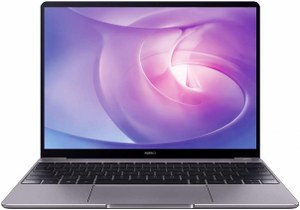 | Huawei Matebook 13 | Display: 13 inch RAM: 8GB Storage: 512GB SSD Battery: Up to 2.5 hours | |
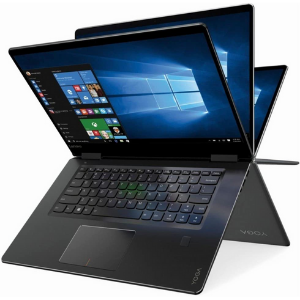 | Lenovo Yoga 710 | Display: 15.6 inch RAM: 8GB Storage: 256GB SSD Battery: Up to 9 hours | |
 | Lenovo Legion Y7000 | Display: 15.6 inch RAM: 16GB Storage: 1TB SSD | |
 | HP Pavilion 15 | Display: 15.6 inch RAM: 16GB Storage: 512GB SSD Battery: Up to 8 hours | |
 | ASUS Chromebook Flip C302 | Display: 12.5 inch RAM: 4GB Storage: 64GB SSD Battery: Up to 10 hours | |
 | Newest Dell Inspiron 11 | Display: 11.6 inch RAM: 4GB Storage: 128GB SSD |
Why should Ph.D. students use a laptop? Some facts and stats
When it comes to laptop usage among college students for research, there is no second opinion that a laptop or handheld device is a must.
As a portable technology, a laptop helps doctoral students work with maximum potential. It helps them get things done efficiently and meet deadlines. There are several other reasons, like
According to the “Students and Technology Research Study” by Educause conducted to assess the use of different technologies and devices by students, stated that
- 98% of students reported using laptops in at least one course last year, and 94% rated them as extremely or very important.

Universities/Colleges Recommend Laptop
Most universities and colleges recommend laptops for PhD students and also share specifications. For example, The Bloustein School in the United States provides specifications for their PhD students.
According to Bloustein School, the following are the minimum specs for research students.
- Processor: Intel Core i5 (Intel Core i7 recommended)
- OS: Windows 10 x64
- RAM: 8GB (16 GB recommended)
- Storage: 256 GB SSD hard drive (512 GB SSD is recommended)
- Graphics Card: Integrated graphics (discrete or dedicated graphics card is recommended)
- Screen Resolution : 1080p
- Webcam : should be there with proper resolution
- Warranty: Three-years warranty is recommended
Another US based Tufts university has also instructed its students to bring laptops.
Data Collection and Analysis
Famous European website ResearchGate for scientists and researchers shared study “Tracking the PhD Students’ Daily Computer Use” which shows that students use laptops up to 8 hours daily for data collection, analysis and for preparation.
Another study “The Impact of Laptop Use on Student Achievement,” by ResearchGate shows that students with laptops performed better and earned top CGP.
Use of Simulators or Emulators for Research
Many PhD students have to test their data that has been collected for research from surveys or other resources, or they have developed a prototype to test.
When it is not possible to test those prototypes or data for any reason, then simulators come to the rescue and give results, findings, and reading to scholars. They can be run on high-end laptops to save time and money.
Write Research Paper and Thesis
In this digital age, where the internet and computer technologies have a great impact on educational research,. Researchers have to write and publish their research papers in reputed journals.
In order to do it fast and efficiently, a laptop plays a key role in composing a thesis and research paper.
Taking Notes, Online Search
A Phd student has to take a lot of notes, and it’s quite a hefty task to keep them organized on paper or in notebooks.
A 2-in-1 laptop with a stylus is the best option to take notes and random writing and then use any note software to organize. Furthermore, they have to search, explore, and study a lot of research topics online or offline to prepare assignments.
While paper or hard copies cost more than on screen reading, to take references. So this laptop became essential for them. It’s a lot easier to store as many notes and research papers as a student wants.
Online Quizzes, Surveys, and Assignment Submissions
For research, a PhD scholar has to take many exams and quizzes online, especially when Covid-19 struck the whole world, then it became the norm of education.
Furthermore, they have to conduct and respond to different research surveys to support their research topic. Assignment preparation and submission is also done through online LMS portals.
Recommendations list of Best Laptops for Ph.D. Students
In this article, we have prepared a list of the best laptops for PhD scholars for research and writing, which includes science PhD student subjects like Math, Physics, Chemistry, Engineering, or Psychology.
If you are planning to defend your research, then we have listed a laptop to prepare Ph. D viva presentation as well. Just have a look at each category’s description.
1. Apple MacBook Pro – Best Laptop For Physics Ph.D.

Apple MacBook Pro comes up with new intel processors and improved RAM speed for Ph.D. students to deliver better performance. It has 13.3 inches of screen size, which makes it portable. This MacBook has a 10th generation intel core i5 processor having a capacity from 512 GB to 1 TB.
As Ph.D. students, you have to write a lot and make so many notes and reports. Therefore, the MacBook Pro has a backlit keyboard that is highly responsive to type silently, it also features a touch bar and touch ID.
Moreover, it has a brilliant retina display with Intel Iris Plus graphics and a super-fast SSD. The battery life stays up to 10 hours, which is very good. The Apple MacBook Pro is the best laptop for any Ph.D. student because it has everything a student needs to handle workload efficiently.
Apple MacBook Pro has 16 GB and 32 GB computer memory and up to 4 TB SSD storage that will help students to keep everything on the laptop later use.
Let me amaze you with its splendid features, and you can quickly go through any spreadsheet or lesson with the inverted-T arrow keys. Its magic keyboard will get you a responsive, quiet, and comfortable typing experience.
As a student, we have to spend hours on a laptop, and it is tough to be there the whole day, but the MacBook Pro makes it easy with its east on the eye feature. It offers 500 nits brightness, accurate true tone technology, and 25% more colors than sRGB, making it appealing.
Apple MacBook Pro has powerful thunder-bolt 3 ports which are useful for fast charging and data transfers with ultra-high bandwidth speed.
Features
- 13 Inches Screen and 15.6mm thin
- Comes up with up to 32GB memory and 4TB SSD storage
- A touch bar and touch ID for fast authentication
- Has a wide stereo sound
- Four Thunderbolt 3 USB-C type ports
2. Jumper Windows 10 Laptop – Best Laptop For Ph.D. Viva Presentation

The infamous laptop brand has13.3 inches widescreen comes with Windows 10 Home as its operating system and has salient features. It is one of the cheapest laptops for students and has enough specs for many Ph.D. students and they may find it a good partner.
The thin bezels give a stylish look to the sleek silver or black-colored laptop. It manages to portray high-quality images and videos because of its full HD high-quality display screen with high resolution (1920×1080). It has a clean, and elegant and slim design of 8mm that is quite lightweight at 2.70 pounds only.
The Jumper comes with many connectivity ports and allows the students to expand the storage capacity of and download or store large document files, research papers and videos, or images.
The memory is just about what makes sense for a student, as its memory size is 4 GB, and its internal storage is 64GB EMMC supported. The storage capacity gives room to necessary files.
The jumper best student laptop is up with a fast and robust Intel Celeron N3350 Dual-Core. The average battery life is approximately around 6 hours. It is known for its ability to perform in such slim size specs.
So containing all these features it is simply the laptop for Ph.D. viva presentation.
3. Acer Aspire 5 Slim Laptop – Best Laptop For Math Ph.D. Students

Acer Aspire 5 slim laptop, another budget choice and one of the best laptops for Ph.D. students. The Acer aspires equips with 15.6 inches screen, Windows 10 operating system, along with AMD Ryzen 3 3200U Dual-Core Processor. Acer Aspire has a powerful specs combination but in the affordable range.
The thin bezels of this laptop are like a cherry on the top. Acer aspires to provides more expansive screen space, enabling them smooth multitasking research work. These are all the requirements that a math Ph.d. student aims to have.
Build quality is much better in this price range. The laptop features multiple connectivity ports, which without a doubt is a must for laptops used by students.
Acer Aspire 5 has a lot more than what most students want, but if you are researching a topic that requires a lot of laptop power and requires more RAM then this is not an excellent option and may lack behind and you have to upgrade.
Display Screen and Resolution:
Aspire 3 has a 15.6 full HD display with a high resolution of 1920×1080 pixels. It has a full-HD IPS display screen with pleasant brightness and colors and offers a wonderful off-angle view, and the matte finish of the laptop adds up in the design.
Operating System:
Window 10 S operating system powers the Acer Aspire 5.
Storage and RAM:
The storage is 256-512 GB which is enough for students pursuing a Ph.D. in any subject because all they have is few GBs data and 512 GB is quite enough.
It has 8GB RAM which is sufficient and provides fast and better performance.
Size and Weight:
The size Acer Aspire is relatively thin, and its weight is only 3.97 lbs, relatively lightweight pounds.
Battery
Acer offers approximately 7.5 hours of battery timing, enabling the students to continue their research without worrying about charging after a few hours.
Ports
The port selection on this budget Aspires 5 model is excellent. On the left side, you get a single USB 3.0 Type-A port, a USB 2.0 port, HDMI, ethernet, and a combo audio jack, along with a cask-shaped power port.
4. HP Stream 14-Inch Touchscreen – Best Laptop For Ph.D. Scholar
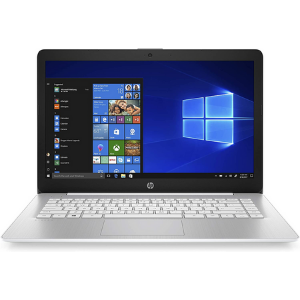
If you are a Ph.D. student and looking for the best touchscreen laptop then HP stream is the best choice for you to work in a home or class. The 14-inches screen is large enough to provide sufficient space during research. The Hp stream enables scholars to see the text comfortably.
The HD display quality laptop comes with a smart dual-core processor, Windows 10 Home in S Mode as its operating system, can be updated later freely.
It has 4GB DDR4 RAM and 64GB Solid-state drive (SSD) storage. If your research needs photoshop and high-quality video editing, then HP Stream will perform average. All of these qualities make HP Stream the best laptop for a Ph.D. research scholar.
HP stream is more than a budget laptop and is the best choice for anyone who just wants a good touchscreen laptop that works well for research and writing.
Display:
The 14-inch display offers a bright and vibrant display with 1366×768 resolution, enough for Ph.D. research students. It is large enough to assist students.
Processor
Hp Stream is equipped with AMD Dual-Core a4-9120e that leads from 1.5 GHz to 2.2 GHz clock rate. This means that the hp stream delivers the best performance compared to the previous generation.
RAM and Storage
Hp Stream provides memory up to 4 GB DDR4 SDRAM (not upgradable) and a storage capacity of 64 GB eMMC storage. Ph.D. students can store large files and can run apps and software effectively.
Battery Life
The HP Stream battery runs up to 8 hours and 15 minutes and for multimedia playback for approximately 4 hours.
5. Acer Aspire E 15- Best Laptop For Science Ph.D. Students

The Acer Aspire E 15 may be out of the price range for few students, but for those that can afford it, it’s excellent as ultraportable laptops to get.
If versatility is a top priority, then don’t look further, the Acer Aspire E 15 is your destiny. It is an all-rounder laptop for research students. The latest Acer Aspire E 15 has a 15.6” full HD display, and an 8th Gen Core i3 processor that has a 2.2 – 3.2 GHz clock rate.
The Acer Aspire has an 8× DVD, which delivers good writing speed for offline media storage. Therefore it is the best laptop for Ph.D. students in the UK. Having a 1TB HDD storage It is affordable in price and rich in services.
The new model of Acer Aspire delivers better performance than its predecessor from last year. Many researchers in the UK use Acer Aspire during their research programs. According to them, the battery life of Acer aspire is up to 13.5 hours and students in universities can use it for their long-term project.
Acer Aspires display panel has a 1920×1080 resolution and a 16:9 aspect ratio. For Ph.D. research work and reports, the keyboard is quite handy, and one can peak typing speeds up to max.
After having an overview of Acer Aspire E 15 features it can be termed as the best laptop for science Ph.D. students.
6. Lenovo IdeaPad 3 Touchscreen- Best Laptop For Economics Ph.D.
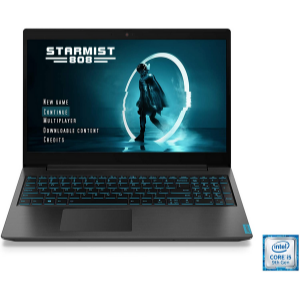
New Lenovo Ideapad can be your best research associate if you agree to recognize its superiority. Lenovo Ideapad is the best touch screen Ideapad with 15.6 inches screen.
It has touch-capability for you to avoid that boringness during extensive research work. Therefore it is the best laptop for science Ph.D. students. They can use this smooth touch screen laptop for research work.
The Lenovo is powered with a 10 generation intel core i3 processor that has 1.2GHz base frequency and can jump up to 3.4 GHz with a Turbo Boost. The 15.6 inches Lenovo laptop is lightly weighted as opposed to its size and has commendable durability.
Lenovo has a full HD LED display with a high resolution of 1366×768 pixels. The Lenovo supplies an anti-glare display to protect the eyes of the users from harmful lights while reading research reports.
It helps Ph.D. scholars to use the laptop for long hours without being worried about their eyes.
The storage capacity of the Lenovo IdeaPad comes with a 256 GB SSD with 8 GB DDR4 RAM. Either science or arts Ph.D. students can do their project and save large files on it.
We are confident that a Ph.D. student will find it helpful as Lenovo does not fail their users to perform according to needs like working on Microsoft apps and complex calculations.
That’s why the Lenovo Ideapad is one of the best laptops for both arts and science subjects like Ph.D. economics students.
7. Razer Blade 15 – Best Laptop For Engineering Ph.D. Students
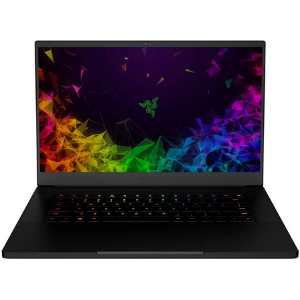
The latest Razer Blade 15 is just not a gaming laptop but a high-performance laptop that it delivers with its 10th generation Core i7 with 6 cores and goes up to 5.0 GHz max with turbo.
It is a thin, lightweight, and compact notebook with such high-tech specs. Being supplied with the best components it has become Amazon Choice in such a short time and makes it an incredible and long-lasting piece of innovation.
The Razor has 16GB RAM and 512 GB SSD Storage so that students can save their research work without any worries about it.
It’s only an outstanding piece to be with while working and researching online. The backlit keypad of super quality will ease it further to type even if you have any sort of injuries.
Display
The Razer Blade has a 4K OLED quality 15.6 inches screen with a 144Hz refresh rate. The thin bezel has a full HD screen contained in it that is perfect for browsing and reading documents online or in PDF format.
The OLED display provides immersive and insane visuals for gaming to Ph.D. students while making presentations for their class. If the research proposal contains image processing segments then NVIDIA GeForce RTX 2060 will help you a lot.
The Razorblade screen has a maximum resolution of 1920×1080 pixels. ideal for lecture presentations. Therefore Razorblade is the best laptop for engineering Ph.D. students as well to play with engineering animations and simulations.
Battery Life
The battery life of Razorblade is not long-lasting when it comes to gaming but normal research work it could be 5 to 7 hours a day.
8. Dell Inspiron 15 – Best Laptop For Ph.D. Chemistry Students

If choosing the best Ph.D. student laptops is a bit tough like challenging for you, you’re not alone. It is unlikely to not test DELL as one of the best laptops for Ph.D. students. Dell Inspiron is an expensive laptop compared to others of the same class, but Dell Inspiron will never compromise its quality.
It has a 15.6-inch Full HD screen with 1920×1080 resolution. It will attract students who love widescreen laptops. It has an LED-Backlit Non-Touch Display with a narrow border giving more viewing space for researchers.
The screen display of Dell Inspiron would provide the students with maximum space, which will permit them convenient multitasking.
Dell Inspiron has inbuilt stereo speakers with MaxxAudio Pro Audio Processing that makes it the best for viva voce presentations.
Its processor slot is equipped with 10th Generation Intel Core i7-1065g7 that has an 8MB cache and up to 3.9 GHz clock speed, which delivers incredible response and smooth multitasking to Ph.D. students.
Dell Inspiron has 16 GB memory which can easily switch back and forth to open applications. It also has 512 GB SSD storage capacity to store large files, documents, movies, and photos, etc.
Simply if you are pursuing Ph.D. chemistry then this Dell notebook is best for you.
9. MSI GS66 Stealth – Best Laptop For Psychology Ph.D. Students

The latest MSI GS66 stealth is another valuable option for Ph.D. students. It is an ultra-thin and Light Gaming Laptop, which is powered by an Intel Core i7 processor that has 2.6 GHz as base frequency and can take you to an incredibly high speed of 5.0GHz.
The 15.6-inch display with 1920×1080 resolution is surrounded by three small bezels on the top and sides, and also, there is a thicker one on the bottom. There is a dotted pattern on top for air intake above the keyboard.
The keys are RGB-lit on a per-key basis and can be customized with SteelSeries 3 software. The MSI GS66 is quite portable for a mid-sized gaming notebook.
The MSI has 16 GB RAM and 512 GB SSD Storage capacity and comes with Windows 10 Pro edition. The powerful laptop with good battery timing is good for psychology students.
Many psychologists reviewed MSI GS66 and found it a reliable choice for students as It has sufficient built-in features for psychology Ph.D. students. The psychologists tagged it as the best laptop for a Ph.D.
Whether to use excel spreadsheets, MS Word, surfing the web on a browser for research, or scrolling down your social media, the notebook won’t disappoint you.
You should try out one of the best laptops for Ph.D. students.
10. Dell New XPS 13 – Best Laptop For Ph.D. Research and Writing
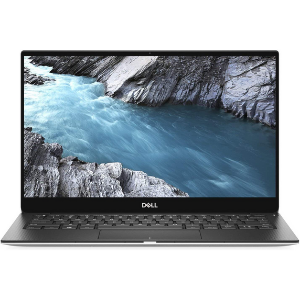
If you are looking for the single purpose of doing your projects, making notes, or writing and editing your research papers, then you have come to the right place. If you are not interested in the macOS, the Dell XPS 13 might be the best choice for you. Most people are addicted to windows.
The XP 13-9380 is also very lightweight and easy to carry. The display of XP 9380 is of high premium quality. XP 9380 has a 13.3-inch display that delivers high-quality and sharp images with vivid colors. XP is a touch screen.
The battery timing of XP9380 is 12 hours. So, students can work on it nonstop. The webcam and inbuilt microphone may attract attention as Ph.D. students are always in need to confer with guides or professors.
Processor and Storage
The Intel Core i7 processor powers the Dell XPS 13 with Quad-Core processing and 8M cache and delivers robust performance and speed.
The Dell XP has 16GB memory and 512GB SSD storage which is enough for students’ Ph.D. research and Writing.
Size and Weight
With the 2.81 lbs weight the Dell XPS 13 is very thin and light in weight, portable and easy to carry from one place to another.
keyboardThe XPS 13 is coming with a backlit and with TouchPad Full size and chiclet English keyboard. While fingerprint sensor along with the latest Thunderbolt 3 port for high-speed data transfer and charging is there.
How to Select Best Laptop for Ph.D. Students – Buyer Guide
Choosing the best laptop for scholars depends primarily on their requirements. Here are some basic considerations while purchasing a Laptop for a Ph.D. student.
Display Screen Size
A student of research has to read a lot of on-screen text while researching on any topic, that’s why screen size matters a lot when buying a laptop. The perfect and right size is one that fulfills a student’s needs.
Since the size of the laptop cannot be upgraded later that’s why you should select the appropriate size.

The key principle is that a laptop should have a larger screen and light enough that can be taken anywhere. Many laptops are thinner and lighter, weighing between 2-4 pounds these days.
Normally, the 13-inch laptop screen size the most convenient to own because they are not as big as other laptops. While 17” size is ideal to read research papers and reports. But in any case, a screen should not be less than an 11.6-inch.
Screen Quality
Laptops have different screen quality. Every Ph.D. student has to face the laptop for hours every day that’s why you need to choose a screen that is very pleasing to the eye.
Such screens usually have a high-resolution and have IPS or OLED display panel that comes with 1920×1080 pixels or higher resolution. The higher the pixels, the more details can be adjusted on the screen. The lower resolution ones show far less content than their high-resolution counterpart.
Alternatively, you can install eye-saver software to avoid eye infections, while few brands offer built-in eye-saver apps with their laptops.
keyboard
Most postgraduates have long writing sessions so a comfortable design having spacious keys with a separate number pad preferably is perfect. Plus It must have an easy-to-use follow layout with full-size/standard buttons.
The buttons should be responsive enough to react with every click. Having a backlit keyboard is a plus, so students can type in poorly lit environments.
Processor (CPU)
The central processing unit or CPU is an important component of any laptop. Most CPUs are now Intel Core-based. There are different types like Core i3, Core i5, Core i7, and Core i9, etc.
These latest generation multi-core processors offer the best performance, especially when it comes to multitasking and multimedia research.

Recently Intel has launched Intel 11th Gen Core processors having core i3, i5, i7 variations. While last generations like 9th and 10th processors are also powerful and efficient.
RAM
The larger the memory, the more applications can run at the same time. This is especially useful for complex software that Ph.D. students run on their laptops. In order to handle the majority of research apps 8GB – 16GB RAM is recommended and in some cases, it can take 32 RAM as well.

Battery life
Ph.D. students who have to travel a lot need a laptop with a long-life battery. The best laptop for Ph.D. scholars should have 10-12 hours battery life. Battery life is known to decrease over time, but proper care and charging can result in longer life.
Connectivity options
Students usually have a range of devices that they need to connect to their laptops, like copying data from a USB flash drive, external hard drive, SD cards for backups.
Having a laptop with different connectivity options makes it easier and more convenient for them when needed. You could transfer files and documents without the help of the Internet.
Price
Another primary consideration when buying a laptop is the price that students will have to pay. There are laptops that you can buy for up to $300-$400. However, if you want better quality and performance, then allocating more budget around $1000-$2000 can expand your choices.
Storage
It is a personal preference and you should choose according to your requirements. However, we recommend SSD storage as it will make your laptop perform even faster.

A solid-state drive can significantly reduce startup time, file/document access time, or search time. If you are purchasing a PCIe or NVme M.2 SSD, it is the best because it can deliver faster speed than standard SATA SSDs.
Graphics Processing Unit (GPU):
We usually don’t recommend a laptop with a dedicated GPU to Ph.D. students. Not only will this cost you a little more, but it will also reduce the battery life of the laptop.

However, if your research involves graphics designing or video editing work, you’ll need a discrete GPU.
Minimum and Recommended Specs of Ph.D. Laptop
| Features | Minimum | Recommended |
| RAM | 8GB | 16 GB – 32 GB |
| Processor | Intel i5 1.86Ghz | Latest gen like 9 or 10th generationIntel i3, i5, i7,i9 2.0Ghz or Higher |
| Screen Size | 13’’ | 15’’ – 17” (Check 17” and higher Display Screen Laptops) |
| Storage | 250 GB | 512 GB or Higher |
| LCD/LED Monitor | LCD | OLED Or LED with IPS Quality |
FAQs
Which apple Laptop is best for Ph.D. students?
As mentioned before in this article the Apple MacBook Pro is the best laptop for students of Ph.D. across the world.
Which laptop is best for psychology majors that can lead to Ph.D. as well?
The MSI GS 66 stealth notebook is best for psychology students to pursue their degrees from college level to Ph.D.
Even medical and nursing students can also use this laptop.
Overall, which is the best Laptop for Ph.D. students to buy?
When it comes to the word “best” then it varies from person to person, everyone has its own definition of best word. It could be the best budget, display screen, keyboard, or something else.
But overall Dell New XPS 13 is the best laptop for all Ph.D. students.
Do all Ph.D. enrolled students get Laptops from their university?
Well, it depends on certain factors, like if your supervisor has enough budget to cover this necessity then you may have one, or your scholarship offers a laptop in that case you may have one.
But the majority of the Ph.D. students have to buy a laptop on their own.
How many hours a Ph.D. student has to work or study in a week?
Simply, there is almost no holiday for a Ph.D. scholar either he is researching or taking classes. Usually, they have to work more than 35 hours a week.
But remember, research is a continuous and full-time assignment, and taking a break could push your research weeks back.
Conclusion
In a world full of technology ease, education is becoming a top niche for everyone. Most of the graduates tend to pursue their studies to the Ph.D. level to become laureate. But it’s difficult for them to choose a laptop that meets their requirements in the best way.
So, in this article, we have covered all technical and general details to facilitate doctoral-level students. In order to sum up the discussion, there are winners and runner up in the race for laptops.
Overall, Dell New XPS 13 is best for Ph.D. students and Razer Blade 15 is runner up, while Apple MacBook Pro is at 3rd best on our list.

